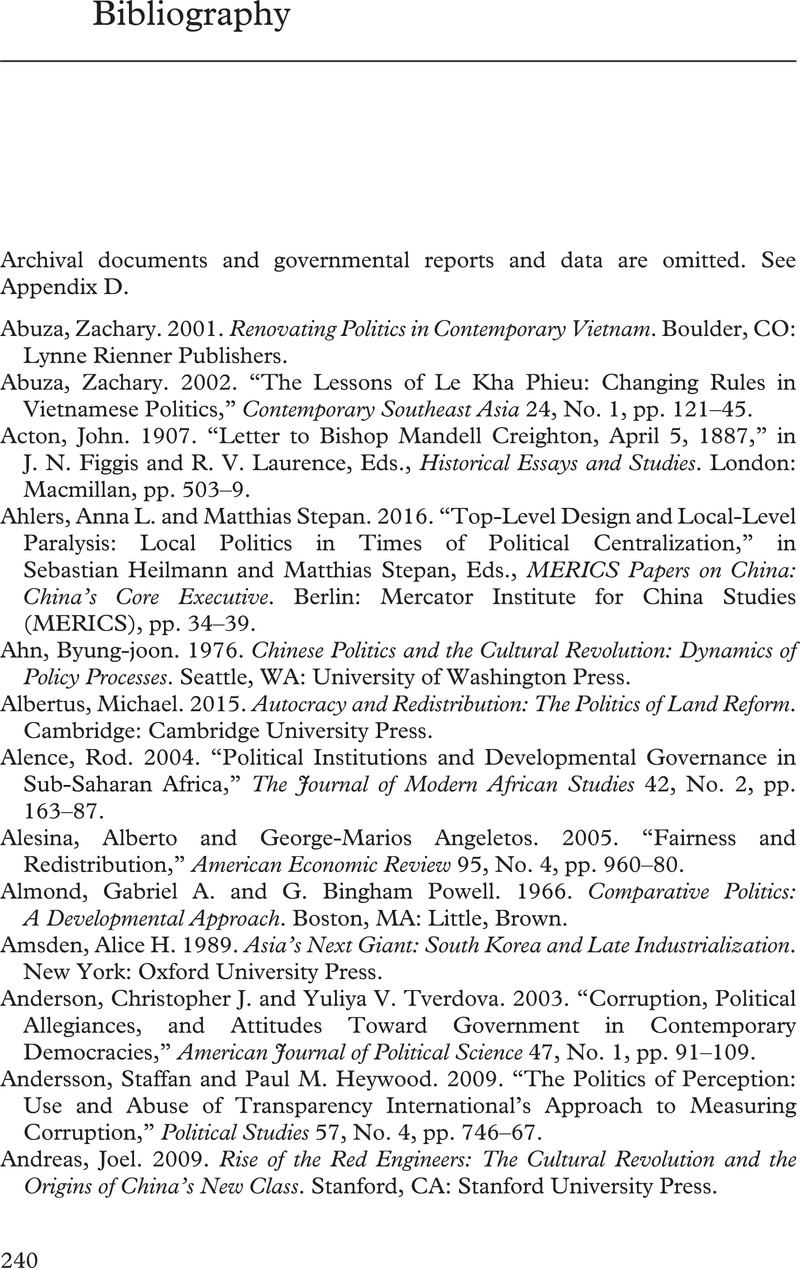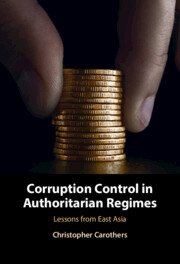Book contents
- Corruption Control in Authoritarian Regimes
- Corruption Control in Authoritarian Regimes
- Copyright page
- Contents
- Figures
- Tables
- Acknowledgments
- 1 Introduction
- 2 Theory and Methodology
- 3 How the Kuomintang Cleaned House in Taiwan
- 4 Corruption Control in Authoritarian South Korea
- 5 The Chinese Communist Party’s War against Corruption, 1921–1990
- 6 Xi Jinping’s Campaign and the End of Political Liberalization
- 7 Anti-corruption Efforts around the Authoritarian World
- 8 Conclusion
- Book part
- Bibliography
- Index
- References
Bibliography
Published online by Cambridge University Press: 31 March 2022
- Corruption Control in Authoritarian Regimes
- Corruption Control in Authoritarian Regimes
- Copyright page
- Contents
- Figures
- Tables
- Acknowledgments
- 1 Introduction
- 2 Theory and Methodology
- 3 How the Kuomintang Cleaned House in Taiwan
- 4 Corruption Control in Authoritarian South Korea
- 5 The Chinese Communist Party’s War against Corruption, 1921–1990
- 6 Xi Jinping’s Campaign and the End of Political Liberalization
- 7 Anti-corruption Efforts around the Authoritarian World
- 8 Conclusion
- Book part
- Bibliography
- Index
- References
Summary

- Type
- Chapter
- Information
- Corruption Control in Authoritarian RegimesLessons from East Asia, pp. 240 - 277Publisher: Cambridge University PressPrint publication year: 2022



